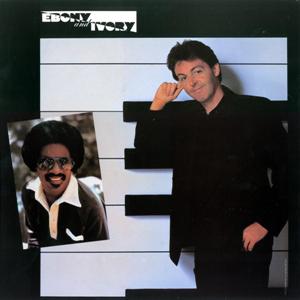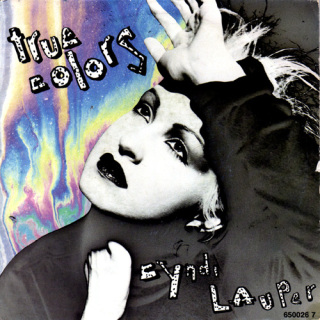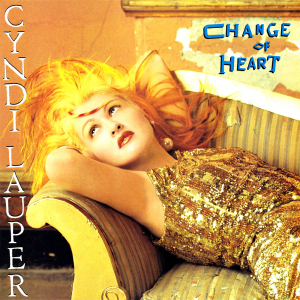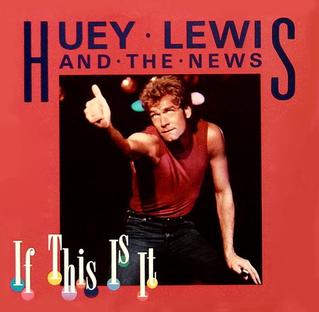
"She Bop" is a song by American singer-songwriter Cyndi Lauper, released as the third single from her debut studio album, She's So Unusual (1983). It reached number three on the US Billboard Hot 100 chart in September 1984. Worldwide, the song is her third most commercially successful single after "Girls Just Want to Have Fun" and "Time After Time", and also reached number 46 on the UK Singles Chart and number six on the ARIA Singles Chart. "She Bop" was Lauper's third consecutive top 5 on the Hot 100. She recorded a quieter version of the song for her 2005 album The Body Acoustic.

She's So Unusual is the debut studio album by American singer and songwriter Cyndi Lauper, released on October 14, 1983, by Portrait Records. The album was re-released in 2014 to commemorate its 30th anniversary, and was called She's So Unusual: A 30th Anniversary Celebration. The re-release contains demos and remixes of previously released material, as well as new artwork.

"Girls Just Want to Have Fun" is a song made famous by Cyndi Lauper four years after it was written by Robert Hazard. It was the first major single released by Lauper as a solo artist and the lead single from her debut studio album, She's So Unusual (1983). Lauper's version gained recognition as a feminist anthem and was promoted by a Grammy-winning music video. It has been covered, either as a studio recording or in a live performance, by over 30 other artists.

True Colors is the second studio album by American singer Cyndi Lauper, released on September 16, 1986, by Portrait Records. The album spawned several commercially successful singles as "True Colors", "Change of Heart", and "What's Going On" reached the top 20 of the Billboard Hot 100, with the first two charting within the top five. The album was produced by Lauper herself together with Lennie Petze.
"I Drove All Night" is a song written and composed by American songwriters Billy Steinberg and Tom Kelly and originally intended for Roy Orbison. Orbison recorded the song in 1987, the year before his death, but his version was not released until 1992. Cyndi Lauper recorded the song and released it as a single for her A Night to Remember album. Her version became a top 10 hit on both sides of the Atlantic in 1989 and was also her final top 40 hit on the American pop charts. Lauper still regularly performs the song in her live concerts. The song has also been covered by Canadian singer Celine Dion, whose version topped the Canadian Singles Chart and reached number 7 on the US Adult Contemporary chart in 2003.

"Time After Time" is a 1983 song by American singer-songwriter Cyndi Lauper, co-written with Rob Hyman, who also provided backing vocals. It was the second single released from her debut studio album, She's So Unusual (1983). The track was produced by Rick Chertoff and released as a single on January 27, 1984. The song became Lauper's first number 1 hit in the U.S. The song was written in the album's final stages, after "Girls Just Wanna Have Fun", "She Bop" and "All Through the Night" had been written. The writing began with the title, which Lauper had seen in TV Guide magazine, referring to the science fiction film Time After Time (1979).

"I Just Called to Say I Love You" is a ballad written, produced, and performed by American R&B singer and songwriter Stevie Wonder. It was a major international hit, and remains Wonder's best-selling single to date, having topped a record 19 charts.

"Ebony and Ivory" is a song that was released in 1982 as a single by Paul McCartney featuring Stevie Wonder. It was issued on 29 March that year as the lead single from McCartney's third solo album, Tug of War (1982). Written by McCartney, the song aligns the black and white keys of a piano keyboard with the theme of racial harmony. The single reached number one on both the UK and the US charts and was among the top-selling singles of 1982 in the US. During the apartheid era, the South African Broadcasting Corporation banned the song after Wonder dedicated his 1984 Academy Award for Best Original Song to Nelson Mandela.

"Silly Love Songs" is a song by the British–American rock band Wings that was written by Paul and Linda McCartney. The song first appeared in March 1976 on the album Wings at the Speed of Sound, then it was released as a single backed with "Cook of the House" on 1 April in the US, and 30 April in the UK. The song, which features disco overtones, was written in response to music critics accusing McCartney of predominantly writing "silly love songs" and "sentimental slush".

"True Colors" is a song written by American songwriters Billy Steinberg and Tom Kelly. It was both the title track and the first single released from American singer Cyndi Lauper's second album (1986). Released late in the summer of 1986, the song would become a major hit for Lauper, spending two weeks at number one on the US Billboard Hot 100, becoming her last single to occupy the top of the chart. It received a Grammy Award nomination for Best Female Pop Vocal Performance.

"Change of Heart" is a song by American singer and songwriter Cyndi Lauper, released on November 11, 1986 as the second single from her second album, True Colors (1986). It went gold in the US, peaking at No. 3 on the Billboard Hot 100. Popular remixes by Shep Pettibone were also released. A music video was produced for the song, filmed in Trafalgar Square in London. It features Lauper and her tour band performing the song in front of a large group of people. The Bangles sang background vocals on the original recording. A live version of the song was released on Lauper's live album/DVD, To Memphis, with Love.

"Because I Love You (The Postman Song)" (or simply titled "Because I Love You") is a song written by Warren Allen Brooks and performed by Stevie B. It peaked at number one on the US Billboard Hot 100 chart in December 1990 and remained there for four consecutive weeks. It also spent two weeks at number one on the Billboard Adult Contemporary chart. The song reached the top 10 in several countries worldwide, including Belgium and the Netherlands, where it peaked at number two. It received a gold certification in Australia and the United States. In August 2018, Billboard ranked the song the 71st-biggest hit in the history of the Hot 100.

American singer Cyndi Lauper has released eleven studio albums, six compilation albums, five video albums and fifty-two singles. Worldwide, Lauper has sold approximately 50 million albums, singles and DVDs. According to RIAA, She has sold 8.5 million certified albums in the United States with She's so Unusual being her biggest seller.
"All Through the Night" is a song written and recorded by Jules Shear for his 1983 album Watch Dog. It was produced by Todd Rundgren.

"If This Is It" is a song by American rock band Huey Lewis and the News. It was released as the fourth single from their number-one album Sports in 1984, and became their fifth top-ten and third consecutive number-six hit on the Billboard Hot 100. It also reached number five on the Adult Contemporary chart, and then became their first UK hit single, reaching number 39 on the UK Singles Chart. The song is written in 12
8 time signature.

















